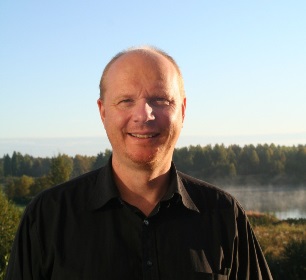ABOUT US
WHO WE ARE: NEWS
Jarkko Saarinen PhD
Presentation Title: Tourism, Communities and Poverty Alleviation: Searching for Responsibility in Sustainable Tourism Development
Jarkko Saarine n is Professor of Geography at the University
of Oulu, Finland, and Distinguished Visitor Professor at the University of
Johannesburg, South Africa. His research interests include tourism and
development, sustainability and responsibility in tourism, tourism-community
relations, tourism and climate change, community-based natural resource
management and wilderness studies. He is currently the Vice-President of the
International Geographical Union (IGU) and Associate Editor in the Journal of
Ecotourism. Previously he has been Professor of Nature-Based Tourism at the
University of Lapland/Finnish Forest Research Institute and Professor of
Tourism at the University of Botswana. His publications include books:
Sustainable Tourism in Southern Africa (2009, co-edited with Becker, Manwa and
Wilson), Tourism and Change in the Polar Regions (2010, co-edited with Hall)
and Tourism and Millennium Development Goals (2013, co-edited with Rogerson and
Manwa). In 2013 he received Association of American Geographer’s (AAG) Roy
Wolfe Award. See: http://www.oulu.fi/maantiede/jarkko_saarinen
n is Professor of Geography at the University
of Oulu, Finland, and Distinguished Visitor Professor at the University of
Johannesburg, South Africa. His research interests include tourism and
development, sustainability and responsibility in tourism, tourism-community
relations, tourism and climate change, community-based natural resource
management and wilderness studies. He is currently the Vice-President of the
International Geographical Union (IGU) and Associate Editor in the Journal of
Ecotourism. Previously he has been Professor of Nature-Based Tourism at the
University of Lapland/Finnish Forest Research Institute and Professor of
Tourism at the University of Botswana. His publications include books:
Sustainable Tourism in Southern Africa (2009, co-edited with Becker, Manwa and
Wilson), Tourism and Change in the Polar Regions (2010, co-edited with Hall)
and Tourism and Millennium Development Goals (2013, co-edited with Rogerson and
Manwa). In 2013 he received Association of American Geographer’s (AAG) Roy
Wolfe Award. See: http://www.oulu.fi/maantiede/jarkko_saarinen
Title: Tourism, Communities and Poverty Alleviation: Searching for Responsibility in Sustainable Tourism Development
The idea of emphasizing community development and setting a local limits to growth in tourism has a long research tradition. Since the turn of 1990s the limits to growth in tourism have been conceptualized through the idea of sustainable tourism which also highlights the role of communities in tourism development.Nowadays sustainability represents an important governance and policy element in all kinds of tourism settings in various parts of the world, including sub-Saharan Africa. In many southern African countries tourism is used as a medium for a diverse scale of economic and social goals. The industry is also used to help previously marginalized and disadvantaged communities as a tool for poverty alleviation. Especially the ideas of community-based tourism, community-based natural resource management and pro-poor development have been highlighted by the inter-governmental and government policies and strategies. Indeed, linking tourism to global scale initiatives and development challenges, such as UN Millennium Goals, has become fashionable in policy circles.
However, it is widely acknowledged that tourism is not ‘cure for all’; while providing national or regional scale development benefits the tourism industry may have also negative dimensions in a local community scale. It has been noted that the industry may involve practices and create structures that can actually hinder the local socio-economic development in a broader sense. Therefore, more responsible tourism development initiatives have been called in a past decade, but setting the limits to growth and locating responsibilities among key stakeholders in tourism-community relations have turned out to be a major challenge. This presentation discusses current challenges in sustainable (and responsible) tourism and possibilities to locate responsibilities in tourism-community relations with examples from the southern African context.

